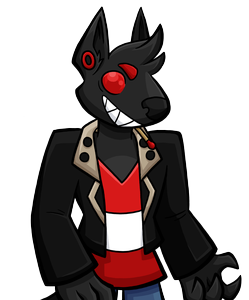
Yo! I’m Black Dog, one of Matcha’s cryptid friends.
Cryptid Kitchen is a cozy game, in a friendly cartoon world. Help Matcha explore her island, like this forest.
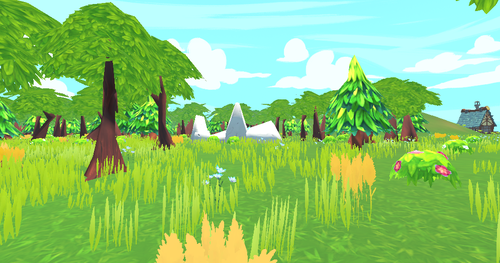
Matcha can run fast, and jump high. She even has a friendly bird she can ride, to make exploring easier.
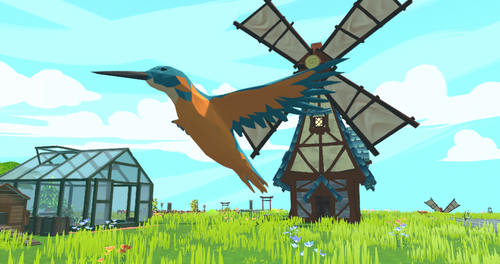
Matcha has a restaurant on the island. She cooks for her friends. Here’s Wendigo, waiting to place an order.
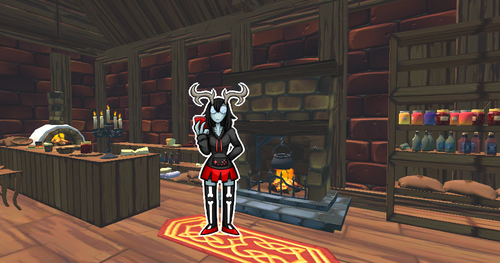

That’s me! I love the dorayaki, though everything’s good. Many noms! Matcha’s a great cook.
Matcha can find ingredients all over the island, like these nuts, dropped by a friendly deer.
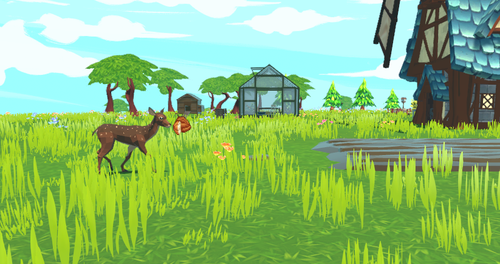
Matcha gets more recipes when she does things like helping her friends. She listens to our troubles, and gives advice. It might work, or it might not.

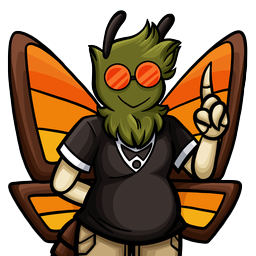
Hi, I’m Mothman. I’m all about the flourishing stuff in the game. Flourishing is, like, how to live a complete life. There’s lots of research on what the good life is. For example, there’s research on how people find meaning in their lives. There are knowledge nuggets around it on the island.
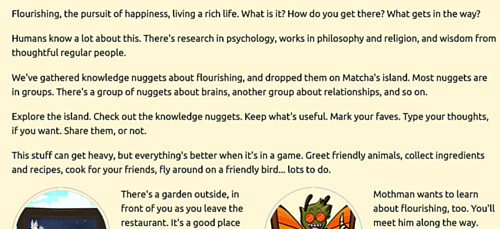
Learning about flourishing has helped me think about my job, my family… everything.
I’m also more at peace with the little irritations of life. I’ve learned how the meat in our heads works, and why I used to get so ticked off about trivial things. Once you understand why that happens, it’s easier to not let stuff get to you.
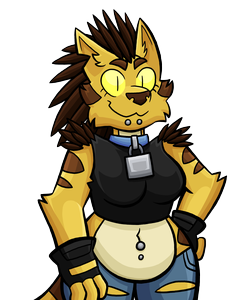
Mothman, my dude, I feel ya.
I’m Cactus Cat, singer in a band with Black Dog.
I’ve never seen a game do what CK does. Yeah, I know I could read a buncha books on flourishing, but… yeah. I like CK’s vibe. It’s fun. It’s happy. It’s deep.
Try it. There’s nothing like it.
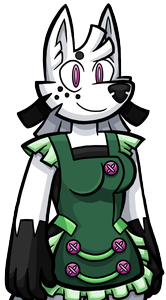
I’m Matcha. You play me in the game.
Here are topics currently in the game. Got an idea for another? Please send us a suggestion.
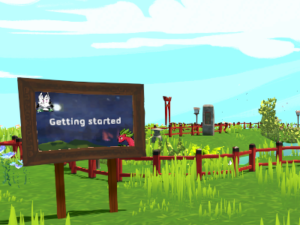
Introduces flourishing, using the Three Lives model:
- The pleasant life
- The fulfilling life
- The meaningful life
Also explains what the game is, and how to play.
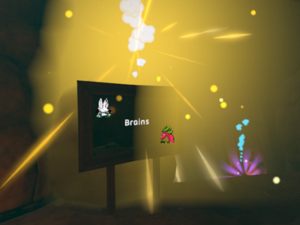
- Automaticity
- Attention
- Memory
- Emotion
- Thought
- The body
- Evolution
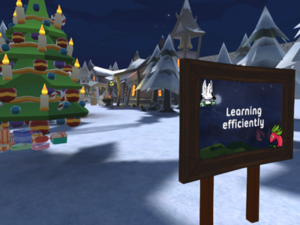
Building skills helps people live a fulfilling life. This area explains ways to improve learning effectiveness and efficiency. Topics include:
- Retrieval practice
- Concrete examples
- Dual coding
- Elaboration
- Interleaving
- Spacing
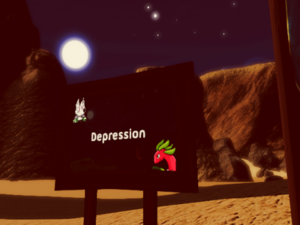
- What is depression?
- Where does depression come from?
- Is depression a character flaw?
- Cognitive treatment
- Meditation treatment
- Medication treatment
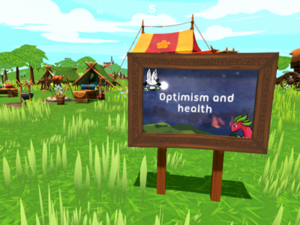
- Dutch optimism (study)
- Learned helplessness
- Mastery and CVD (cardiovascular disease)
- Optimism and heart health
- Veterans, optimism, and CVD
- Women’s optimism and heart health

Topics include:
- Optimists
- Pessimists
- The middle way
- Learning optimism
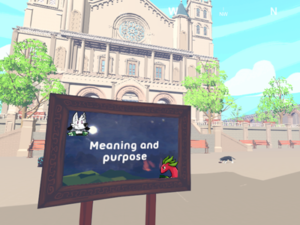
Topics include:
- Sacred and pure
- Elevation
- Social purity
- Purity vs. autonomy
- Religion and behavior
- Happiness and charity
- God’s word
- Religious conflict
- God’s word
- Being flexible
Warning: these nuggets might annoy you.
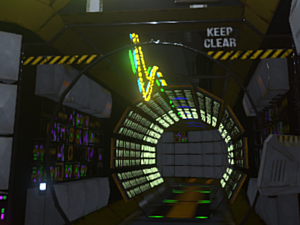
- Why it hurts
- Friendship
- Being friendly
- How to disagree
- Group pressure
- The liking gap
- Checking in
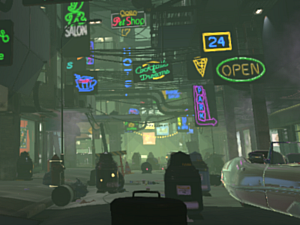
What makes close relationships work? Topics include:
- How you bring all of yourself into your relationship
- People with matching values have better relationships
- Effects of expectations
- Responsiveness
- Conflict
- How to argue
- De-escalation
- Sex
- Changes over time
- Children
- Family and friends

How to flourish at work. Topics include:
- Social connections
- Accomplishment
- Growth
- Autonomy
- Meaning
- Toxic workplaces
- Work/life balance

Topics include:
- Types of meaning
- Sources of meaning
- Social connections
- Meaning in trauma
- Having stuff
- Meaning at work
- Making meaning
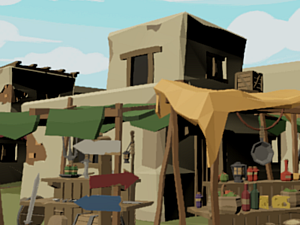
How our brains make choices. Topics include:
- Distinctions
- Emotions are decision makers
- Thinkers training feelers
- Beliefs are social
- Cognitive biases

Topics include:
- Images of adulthood
- Know how brains work
- Being with other people
- Money
- Life skills
- Learning
- Children
- Work
